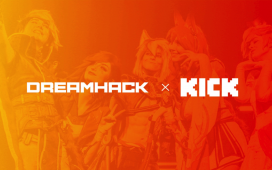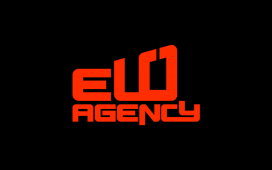We had a raucous but intelligent debate about video game hot topics at the recent GameDaily Connect event in Anaheim, California. Under the lights of the Disneyland Hotel, we held a panel discussion that touched on some of the most controversial topics with some loose cannon speakers.
I moderated a debate session that covered contemporary issues in the game business. Our panelists included Jim Ying, managing director, CVCapital; Michael Pachter, managing director for equity research at Wedbush Securities; Mike DeLaet, CEO of Rogue Games; Mike Futter, freelance journalist and GameDaily Connect contributor; and Stuart Drexler, CEO of Jago Studios.
I started us off with a discussion of loot boxes, but we solicited audience feedback on the topics to discuss, which also included game addiction, parent-child discussions about excessive gaming and esports careers, the hype around the esports business, and the battle between Steam, the Epic Games Store, and other store operators. We could have discussed more, but we capped it at an hour.
I hope you enjoy it. Here’s an edited transcript of our panel.
Loot boxes

Above: Left to right: Stuart Drexler, Jim Ying, Mike DeLaet, Mike Futter, Michael Pachter, and Dean Takaahshi.
Image Credit: GameDaily Connect
GamesBeat: Our first topic is going to be loot boxes. Mike, would you please lay out the facts?
Mike Futter: [beginning truncated]. There were just some workshops that the FTC held, and one of the conversations around this is whether or not the video game industry walked itself into potential government regulation by failing to self-regulate in a way the public deems fit.
GamesBeat: Does anybody want to debate his laying-out of the facts?
Michael Pachter: I’m a recovering lawyer, and when I say “lawyer,” I passed the bar 38 years ago and practiced for about 20. I actually was a lawyer. The term “gambling” in the law requires a wager. Buying loot boxes is very definitely spending money. There’s consideration. Then a “chance.” There’s clearly a chance outcome to win something of value. That’s the trick. When you win something in a loot box, does it have value?
So far, only one court has said yes. They said that if you win a chance to play the game longer — in a slot game you win more coins in loot boxes — then that has value. It’s the only legal opinion ever which has said — it’s the court of appeals for the 9th Circuit in Utah. The judge was a 78-year-old Mormon, meaning he’d never gambled in his life. I don’t mean to say anything bad about Mormons. I just mean he’s not a gambler. It was based on Washington state law that was wishy-washy about value.
Any state with legal gambling — any place with Indian casinos has that — value means getting back something that can be converted to cash. If the game itself doesn’t allow you to sell the item you win in a loot box for cash, then there’s a very solid legal argument that you didn’t gamble. Gambling mechanics, 100 percent. Addictive, 100 percent. You don’t want kids to do it, of course. But if you call it gambling, it’s just illegal if the state law says it’s illegal.
These morons in the Hawaii legislature who decided to sponsor a bill calling it gambling — they thought they were going to legalize it and limit it to people over 21. Except gambling isn’t legal in Hawaii under their constitution. People over 21 aren’t allowed to gamble either. The reason I call these guys morons, they’re unfamiliar with Hawaii law, and they’re responsible for writing the law. It’s a really odd topic.
Futter: Two questions I want to pose back to you before I hand the mike over to someone else. One is the Steam marketplace, where there are games that have loot boxes and you have platform-like system where you can sell those items for money.
Pachter: Like I said, the state of Washington has real funky rules. Steam is really stupid to allow that to happen. They’re really vulnerable. It probably is gambling.
Futter: When I mention skirting that line very closely, that’s what I was talking about. The other thing is, we’re looking at U.S. law. Obviously international law is affecting EA in Belgium in particular.
Pachter: The Belgian law is very clear that that was gambling. You have to look at where — what was EA’s solution? They pulled FIFA out of Belgium and they had a spike in Dutch servers and French servers. They couldn’t figure out why. It was all the Belgian players just logging in to French or Dutch servers. They lost no money. Belgium collected no money.
I personally think it’s a stupid issue to approach that way. It’s different to the ethics. Ethically it’s a terrible thing. Ethically, somebody is going to lose their house because they’re addicted to buying these loot boxes. But it’s not gambling. It’s gambling mechanics. You can outlaw it. You can just say you can’t do this. But it takes a federal law. How do you outlaw FIFA loot boxes in California and not in Nevada? Same thing. Californians will go to a Nevada server and still buy loot boxes.
Jim Ying: I do think it is gambling. I think it’s unfortunate, because people conflate free-to-play and free-to-play mechanics with gacha boxes and loot boxes. Free-to-play mechanics, it is a digital good when you know what you’re buying, just like when you buy a physical good. If you want to apply dollars to a digital good, fine. Myself, I’ve spent hundreds of dollars on video games.
But it’s another thing when you’re spending money on a chance against something and you have no idea what it’s going to be, just as when you go to a casino and roll the dice. At least then you theoretically know the odds, or you can look at find out the odds. For many of these games you don’t even know the odds. There is increasingly legislation or guidance where they’re starting to reveal these odds, which is a step in the right direction. But the fact that — I don’t want to say unregulated. But it’s still kind of the wild west for these types of loot boxes. It’s concerning.

Above: Left to right: Stuart Drexler, Jim Ying, Mike DeLaet, Mike Futter, Michael Pachter, and Nick Berry in the back.
Image Credit: Dean Takahashi
Futter: Is it gambling when you buy a baseball card trading pack? You don’t know what’s inside. There might be cards that are valued at 10 cents and there might be cards valued at $100.
GamesBeat: Do we solve this problem by simply forcing companies to tell you the odds?
Pachter: Is it gambling when you enter a contest on the back of a cereal box? It’s the same thing. The law is very clear. They carved out baseball cards. I don’t know why. But they knew that those existed, so they said they were okay.
Stuart Drexler: There are many types of blind packs. We’re doing a Garbage Pail Kids game. It’s a blind pack card trading game from the get-go.
Mike DeLaet: One thing I can say is, Apple has done a pretty good job of making developers expose the odds in their games. You know in advance what you’re getting into. You know you have a two percent chance of getting a four-star card versus a three-star card. People do know, in general, what they’re getting into. Now, from a business standpoint, I love gacha boxes, loot boxes. From a consumer standpoint I hate them. There’s always a fine line in what we do from a business standpoint versus the consumer standpoint.
Futter: I guess my question around — this came up in the FTC workshops as well. You suddenly have publishers saying, “Yes, we’re going to disclose our odds.” And they should. But my question is, is there any evidence that disclosure of the odds impacts the way someone spends money? Or is it just performative, like putting a warning on the side of a cigarette pack? Yeah, I know the warning’s there. There’s four different kinds of warnings. I don’t smoke, but is someone going to stop smoking because one day they pick up the pack and realize, oh my gosh, this is terrible?
Pachter: I’m not an expert on the evidence. I can say that every state lottery discloses the odds. I don’t think anybody ever thinks about that when they play the lottery. It’s a dollar, and I might win $500 billion. People just say, “I know I only have a one in a trillion chance, but $500 billion.” Everybody knows, when they play the lottery, they don’t have a chance of winning. But we all still do it.
Ying: This starts to get into a gray area. To what degree does your decision-making — are you responsible for your own actions? Everyone would probably agree that gacha boxes shouldn’t be possible in kids’ games, but for an adult who can make their own decisions, should they be able to play this type of game, knowing what the odds are?
DeLaet: At my last company, we did expose the odds. We were worried it would impact revenue in a negative way, but it didn’t impact anything at all. People knew what the odds were and they still bought just as many as they did before.
Drexler: And you probably had fewer customer complaints.

Above: What buying loot boxes looks like in Overwatch.
Image Credit: GamesBeat
GamesBeat: To you guys, are loot boxes sufficiently regulated at this point already?
Drexler: What do you mean by regulated? Do you mean externally or internally?
GamesBeat: There are voluntary things that the platform owners like Apple have done, forcing companies to disclose. They did that to probably head off legislation. But it’s just as effective.
Futter: I guess what I would say in response to this is, if you look at actions the industry has taken in the past to circumvent or preempt government intervention, the ESRB is one, putting ratings on boxes when there was a moral panic around video game violence. That says, “We’re working to educate people.” The ESRB has run education campaigns and continues to run education campaigns.
I’d say the fact that we’ve gotten to this point indicates that maybe the industry isn’t doing enough to self-regulate. Maybe it’s time to look at whether or not the ethical nature — again, this is different from the legal nature. If the ethical nature of loot boxes is causing so many problems and exposing the industry to the risk of government oversight — once it starts, the risk exposure is huge. Perhaps it’s time to find something else. We’re starting to see the phasing out of loot boxes in some games. Fortnite didn’t launch with them. But Save the World did, and they’re phasing them out of Save the World.
Ying: When I was at Gree a few years back, there was government regulation in Japan where they got rid of “complete gacha,” which was a more sinister way, if you want to put it — not only were you rolling for a single item, but you had to gather up multiple items that you had to roll for in order to get a final item. That was banned and shut down. But they didn’t take the next step to regulate gacha in general.
Pachter: The good news is that Congress can’t even agree on a budget. The odds of U.S. politicians actually doing anything is almost nil. But I don’t think that game companies want to participate in hearings and have scrutiny of their practices.
Of the majors, the only one that makes any real money in loot boxes in EA. FIFA Ultimate Team is loot boxes. We can talk about Hearthstone card packs, but that’s a fraction of what Ultimate Team is. They’re probably second.
GamesBeat: There’s pushback from consumers against EA. We saw that with Battlefront II.
Pachter: Ultimate Team is cards, too. I think anybody who plays a game with cards understands card packs. That’s back to baseball cards. We grow up with that. We understand it. I actually think most consumers understand what they’re getting. But they still whine if they spend 50 bucks and don’t get the card they want.
Futter: From the press perspective, when we look at this, the sense that you get on social media isn’t necessarily the feeling from the entire player base. You have this vocal minority. “EA is evil. Ultimate Team is evil.” But you look at the revenue associated with it. It’s not just that it does well. People love playing those modes. They specifically pick up FIFA, Madden, and NHL for those modes. We need to be careful about, from a social media perspective — what we’re hearing from a group doesn’t necessarily represent the feeling more broadly.

Above: Commander Iden Versio in Star Wars Battlefront II’s single-player campaign.
Image Credit: EA/Disney
GamesBeat: Maybe they’re all addicted, which gets us into another topic for debate. [laughter] Anyway, we’ve done 15 minutes on loot boxes so far. I wonder if the audience now would like us to switch to something else. Is there another hot topic for debate that follows the example that we just set with the loot box discussion?
Audience: Given what Blizzard is doing with Hearthstone and Overwatch — when you open X amount of packs, you’re guaranteed to get the highest rarity. Do you think that’s a route to tackle the ethical issue?
Pachter: I play a ton of those games. I’ve literally spent thousands of dollars. I’m seeing now, more and more, “If you buy this bundle of loot boxes you’re guaranteed these items.” So yes, if that’s why you’re doing it, then you buy that bundle. If you know that you want a certain character and it’s 100 bucks, that’s your decision. All the games give you a path to grind it out.
I spoke to the Finland Trade Council for games in the U.S. My impression is that the Finnish mobile games all do this masterfully, and the rest of the world just can’t get their shit together. I said, “Why is this?” She said, “We’re a social democracy and we believe in fairness. Rich people pay and poor people can grind it out.” It’s true. If you play Supercell, you see it. You get why their games work. I think what you’re talking about is exactly the right outcome.
Futter: The word “fairness” stands out to me in what you just said. Before I did what I do now, I worked in kids’ media for a very long time. Kids want life to be fair. That’s really important. That inner child in all of us lasts through. If you keep opening packs and boxes and you’re not getting what you want, you’re going to be a bit annoyed. If you have a sense of the fairness of it all — I don’t know who’s gonna regulate that. That’s a different story. A bit above my pay grade. But I think of a system where — people are willing to accept that they pay that $500 or $5,000 as long as they get what they want.
DeLaet: One thing I’d add is these studios definitely have an idea of what a certain rarity of character is worth. At my last studio, we’d say, “This character is worth $10,000.” When you get to a point where someone has paid $9,000 and still not gotten what they want, then you can increase the odds dramatically and say, “Now they get it.” There are ways to make that happen, and that’s something worth thinking about.














